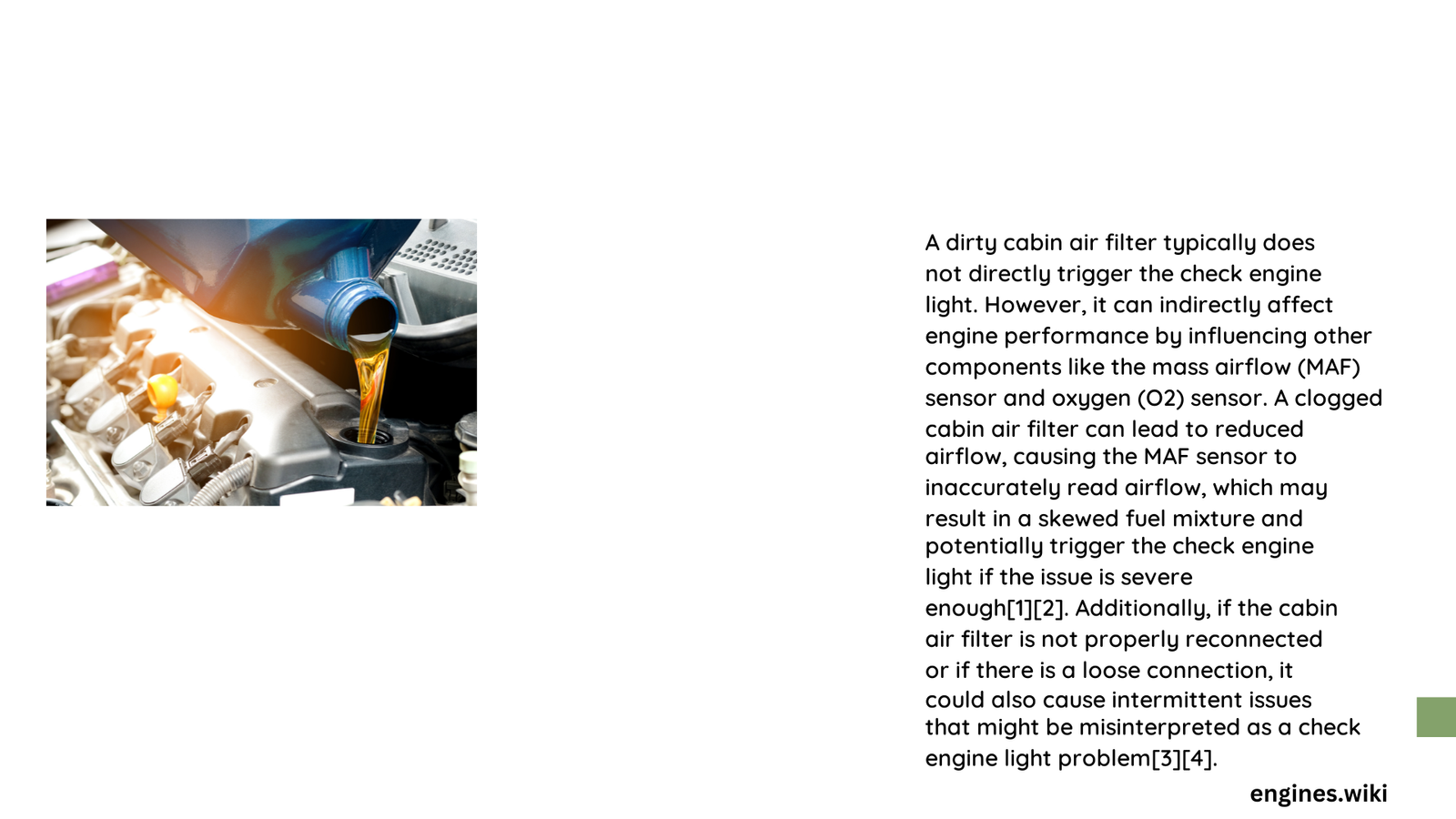Vehicle owners often wonder about the intricate relationship between cabin air filters and check engine lights. While many assume these components are directly linked, the reality is more nuanced. A cabin air filter primarily affects interior air quality and HVAC system performance, and typically does not trigger the check engine light. However, understanding the subtle interactions between different vehicle systems can provide crucial insights into automotive maintenance and diagnostic processes.
What Causes a Check Engine Light to Activate?
A check engine light illuminates due to specific engine performance and emission-related issues detected by the vehicle’s onboard diagnostic system. These triggers include:
- Oxygen sensor malfunctions
- Catalytic converter problems
- Spark plug or ignition coil failures
- Mass airflow sensor errors
- Fuel system complications
Does a Cabin Air Filter Impact Engine Performance?
Cabin air filters are designed to filter incoming air inside the vehicle’s passenger compartment, focusing on:
- Removing dust particles
- Blocking allergens
- Preventing pollutants from entering the interior
| Filter Type | Primary Function | Check Engine Light Impact |
|---|---|---|
| Cabin Air Filter | Interior Air Purification | Minimal to No Direct Impact |
| Engine Air Filter | Protect Engine from Contaminants | Potential Indirect Trigger |
Can a Dirty Cabin Air Filter Cause Check Engine Light?

Direct Answer: No, a dirty cabin air filter will not directly turn on the check engine light. The cabin air filter operates independently from the engine’s critical systems and does not influence engine performance metrics monitored by the vehicle’s computer.
What Symptoms Indicate a Problematic Cabin Air Filter?
While a cabin air filter won’t trigger the check engine light, it can present other noticeable signs:
- Reduced airflow from dashboard vents
- Musty or unpleasant odors inside the vehicle
- Increased fan noise
- Visible dust accumulation around air vents
- Potential allergy or respiratory irritation
Engine Air Filter vs. Cabin Air Filter: Key Differences
Understanding the distinction between these two filters is crucial:
Engine Air Filter:
– Protects internal engine components
– Ensures clean air for combustion
– Can indirectly affect check engine light if severely clogged
Cabin Air Filter:
– Filters air entering passenger compartment
– Improves interior air quality
– No direct connection to engine performance monitoring
When Should You Replace Air Filters?
Recommended replacement intervals:
- Cabin Air Filter: Every 15,000-30,000 miles
- Engine Air Filter: Every 15,000-45,000 miles (varies by manufacturer)
Professional Diagnostic Recommendations
- Regular maintenance checks
- Use manufacturer-recommended filter replacements
- Address any unusual vehicle performance immediately
- Consult professional mechanics for complex diagnostic needs
Conclusion
A cabin air filter does not turn on the check engine light. While essential for interior air quality, it remains separate from engine performance monitoring systems. Vehicle owners should focus on regular maintenance and address any warning lights promptly with professional diagnostic services.
